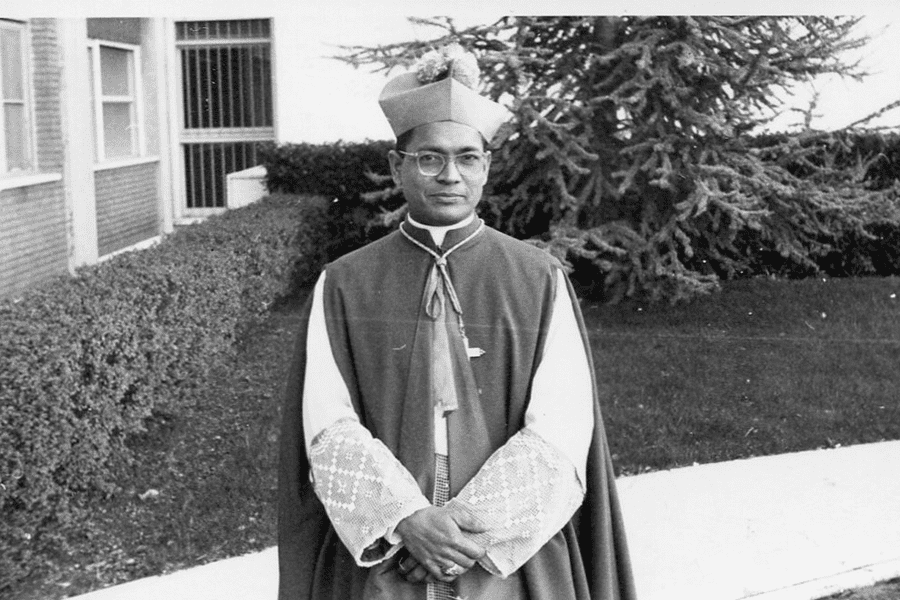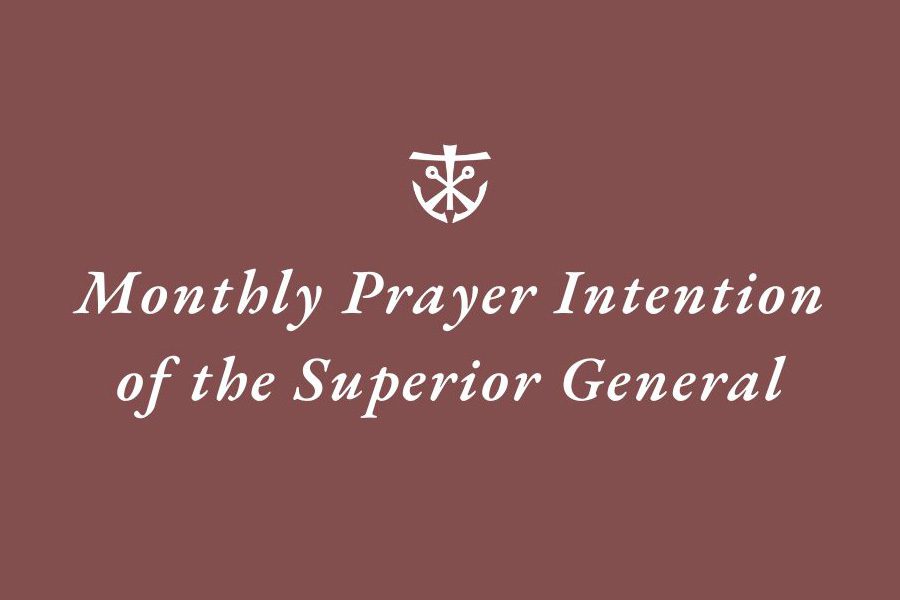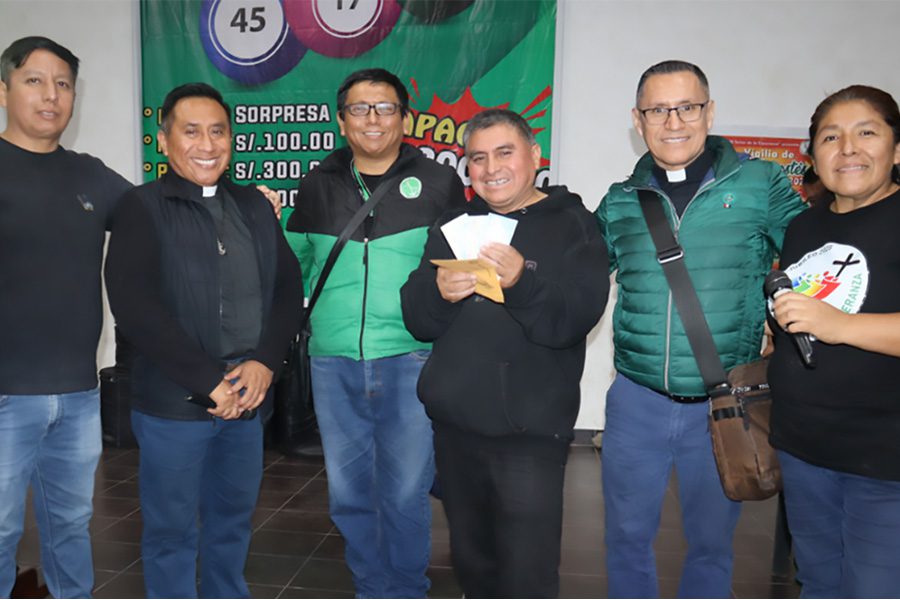
How can we succinctly summarize who someone is? What is at the very heart of someone’s God-given identity?
In thinking about Servant of God Theotonius Amal Ganguly, a Holy Cross missionary hero, I understood his identity in Christ in three ways:
1. Identity he inherited
2. Identity he chose
3. Identity he lived as disciple
I. Inherited Identity in Christ
Born in Hashnabad, a neighborhood in Bangladesh’s capital city of Dhaka, Ganguly received his name from his parents. In some ways, his name was the first way he inherited his parent’s faith.
Theotonius Amal Ganguly
Theotonius is a Greek name meaning “godly,” and it was chosen by his parents likely because he was born on St. Theotonius’s feast day, February 18, 1920. His middle name, Amal, means “spotless.” By choosing these names for their son, Ganguly’s parents clearly desired for him to live a holy and morally upright life. From that, we understand a small piece of the home environment that Ganguly must have experienced as a child, the kinds of values and practices that his parents sought to pass on to him, and we can only imagine the ways that they helped their son become “godly” by following the example of God made Man in Jesus of Nazareth. His name, like all names, is a reminder of the world he entered but did not create, of the relationships he received but had no choice in, of the family history from which his life would sprout.
For parents and teachers:
All of our names have some story, perhaps even a story that connects to our parents’ faith. Take a moment today to learn why your parents gave you your name. Perhaps it’s a family name, a saint’s name, or the name of someone they admired. Perhaps it is unique so as to set you apart from your peers. Maybe it is spelled differently from the more common spelling of that name. Perhaps your parents debated for months about which name was best, or perhaps they let the Spirit guide their naming decision shortly after you were born. What about you can be uncovered by examining the name your parents gave you?
II. Chosen Identity in Christ
As Ganguly grew beyond infancy and childhood into his teenage years and adulthood, he faced a series of choices to accept the deep meaning of his given names or to rebel against them. Would he lean into the name his parents gave him and conduct himself in a “godly” way? Would he return to Reconciliation after he sinned to receive God’s mercy and become “spotless” once again?
From his life trajectory, it is clear that Theotonius Amal Ganguly did indeed try to live out his name’s meaning. His faith spurred him on to become a diocesan priest in Bangladesh. Shortly after ordination, he chose to follow the recommendation of his bishop and attend the University of Notre Dame where he completed his Master’s and Ph.D. on topics pertinent to his vocational call to proclaim the Gospel. Inspired by the community life of the Congregation of Holy Cross, he joined the Congregation and returned to his home country to minister in Holy Cross schools as a professor, administrator, and principal.
In 1960, Fr. Ganguly, C.S.C., was summoned by Pope St. John XXIII to be ordained a bishop, which he accepted. In doing so, he also had to choose his episcopal motto, a motto that encapsulates his approach to his role as a bishop. After reflecting, he decided upon the following:
I Come to You With Joyful Heart
This motto is part of Ganguly’s identity as a Child of God that he willingly chose. Consider a few elements of it. “I Come to You” is a powerful statement for a bishop who has many administrative duties and a full schedule. Amid those responsibilities, Ganguly wanted his flock to know that he would approach them, he would be attentive to them, he would reach out to them. Or more accurately, that he would approach, be attentive to, and reach out to you specifically. What a Christlike way for a bishop to approach the People of God.
Not only that, Ganguly’s motto says he will come to you “With Joyful Heart”—not “with big ideas,” not “with something you need,” not “with self-righteousness.” No, Ganguly wanted to publicly declare that he would approach the people with a joyful heart. Perhaps he knew of St. Teresa of Avila’s spiritual insight that “Joy is the most infallible sign of the presence of God,” and he wanted to convey God’s presence to those he served as bishop. Regardless, we can say that his episcopal motto conveys the tender and personal way that he wished to share the Gospel.
For parents and teachers:
All of us chose some aspects of our identity, ideally in a way that reflects our identity in Christ. Like Ganguly, we need words and symbols to remind us and others how we want to live and what identity we want to embrace. Considering Ganguly’s episcopal motto and the mottos of other Catholic bishops, think of your own motto, one that gives glory to God. What personal motto will help you live out your identity in Christ?
III. Lived Identity in Christ
The third and final way to understand Ganguly’s identity is by considering how others understood his life. Humans can, of course, deceive themselves, so we can understand who Ganguly was not just by the words he chose as his motto but by the ways others experienced him. Who was Ganguly to them?
To answer this question, I turn to the remarks made about Archbishop Ganguly, C.S.C., after his death on September 2, 1977. Many inspiring words were said about him. For instance, Rev. Arnold “Gus” Fell, C.S.C., the Director of what is now the Holy Cross Mission Center from 1959-1986, said, “What matters, and what we will remember him for, is the personal virtue he radiated.” Fell also had this way of summing up Ganguly: “Recite the Beatitudes and you have a character profile of Theotonius Ganguly.” That is some high praise!
Another person indicated that no one could remember Ganguly ever speaking a word in anger. He must truly have tried to carry a “joyful heart” with him even in the most difficult of circumstances, which were legion during his time as bishop and archbishop.
The words I would like to dwell on most come from the eulogy given by Rev. Thomas Zimmerman, C.S.C., at Ganguly’s funeral Mass. Ganguly was, according to Fr. Zimmerman,
Strong in his gentleness.
I have been inspired by this description since I read it last year. It draws to mind a faithful priest sitting in a confessional with a penitent, allowing God’s healing mercy to be made known. Fr. Zimmerman’s description also makes me wonder about Ganguly’s response to human carnage caused by the 1970 tsunami and the 1971 Bangladesh Liberation War. In both of those instances, he must have needed interior strength and resoluteness to assist in the recovery efforts, and when he sat with those who had lost loved ones or who had been traumatized by war, I can imagine God’s presence being made known through his gentleness.
From my vantage point, we could use more faithful witnesses who are “strong in their gentleness.” Christ’s love could be made known to those who are worn down, depressed, or isolated if we, Christ’s Body on earth, could display Ganguly’s strength through gentleness.
For parents and teachers:
In order to remind others of their God-given goodness, take a moment to think of your family members, friends, teachers, and classmates. How have they displayed their identity in Christ to you? Answer that question by completing this sentence starter: “You have made God known to me by being…” Share the answers with them so that they might know how you have known God’s presence through them.
Servant of God Theotonius Amal Ganguly, pray for us!
Published: January 15, 2024

July 2025 Prayer Intention of the Superior General
All are invited to pray along with Superior General Br. Paul Bednarczyk, C.S.C., this month: Through the intercession of St. Joseph, may foster...

2025-26 Bricklayers Matching Grant Doubled in Honor of the Year of Mission
In celebration of the Congregation of Holy Cross’s Year of Mission, the Holy Cross Mission Center is delighted to announce an expanded $4,000...

Lord of Hope Parish Raises Funds Through Traditional “Bingo Kermesse”
On Sunday, May 25, the traditional “Bingo Kermesse” of the Parish El Señor de la Esperanza was held with great enthusiasm at the Rev. David Farrell...
